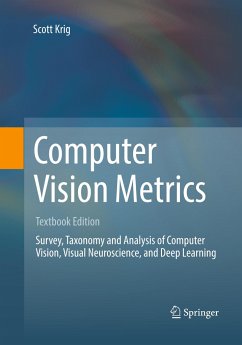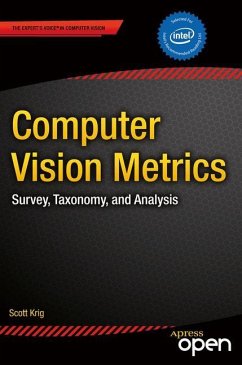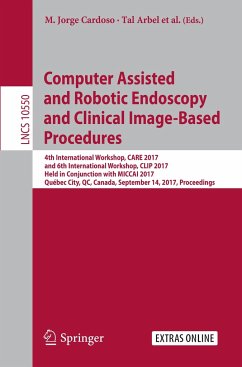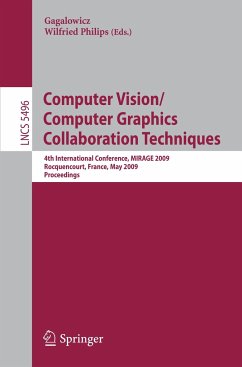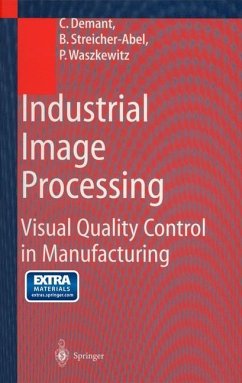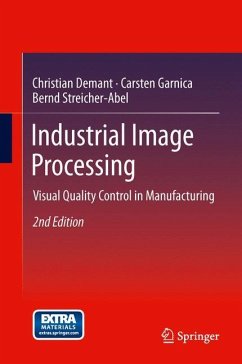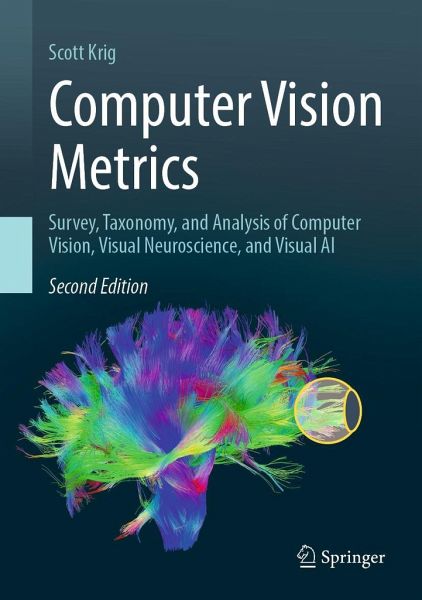
Computer Vision Metrics
Survey, Taxonomy, and Analysis of Computer Vision, Visual Neuroscience, and Visual AI
Versandkostenfrei!
Versandfertig in 6-10 Tagen
85,99 €
inkl. MwSt.
Weitere Ausgaben:

PAYBACK Punkte
43 °P sammeln!
This 2nd Edition, based on the successful 2016 textbook, has been updated and expanded to cover 3rd generation Computer Vision and AI as it supersedes historical visual computing methods, providing a comprehensive survey of essential topics and methods in Computer Vision. With over 1,200 essential references, as well as chapter-by-chapter learning assignments, the book offers a valuable resource for students, researchers, scientists and engineers, helping them dig deeper into core computer vision and foundational visual computing and neuroscience topics.As before, a historical survey of advanc...
This 2nd Edition, based on the successful 2016 textbook, has been updated and expanded to cover 3rd generation Computer Vision and AI as it supersedes historical visual computing methods, providing a comprehensive survey of essential topics and methods in Computer Vision. With over 1,200 essential references, as well as chapter-by-chapter learning assignments, the book offers a valuable resource for students, researchers, scientists and engineers, helping them dig deeper into core computer vision and foundational visual computing and neuroscience topics.
As before, a historical survey of advances in Computer Vision is provided, updated to reflect the latest methods such as Vision Transformers, attention models, alternative features such as Fourier neurons and Binary neurons, hybrid DNN architectures, self-supervised and enhanced learning models, Associative Multimodal Learning, Continuous Learning, View Synthesis, intelligent Scientific Imaging, andadvances in training protocols. Updates have also been added for 2d/3d cameras, software libraries and open source resources, computer vision cloud services, and vision/AI hardware accelerators. Discussion and analysis are provided to uncover intuition and delve into the essence of key advancements, applied and forward-looking topics.
As before, a historical survey of advances in Computer Vision is provided, updated to reflect the latest methods such as Vision Transformers, attention models, alternative features such as Fourier neurons and Binary neurons, hybrid DNN architectures, self-supervised and enhanced learning models, Associative Multimodal Learning, Continuous Learning, View Synthesis, intelligent Scientific Imaging, andadvances in training protocols. Updates have also been added for 2d/3d cameras, software libraries and open source resources, computer vision cloud services, and vision/AI hardware accelerators. Discussion and analysis are provided to uncover intuition and delve into the essence of key advancements, applied and forward-looking topics.





